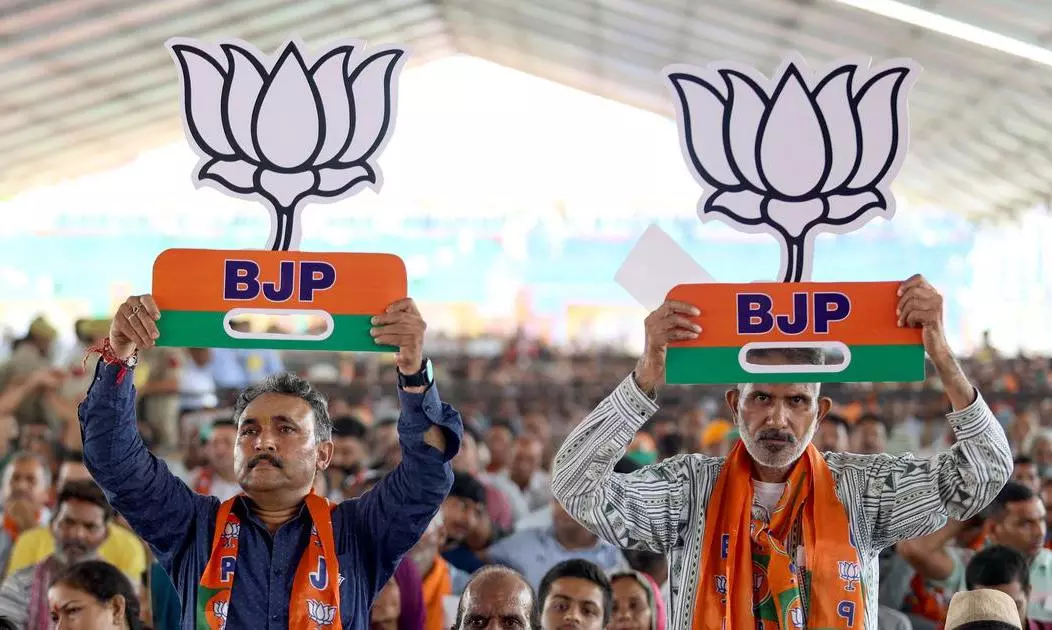
Delimitation fails to consolidate Hindu votes for BJP in Jammu despite more seats
text_fieldsThe delimitation of Jammu and Kashmir's electoral constituencies, undertaken in 2022, has not yielded the anticipated electoral advantage for the BJP in the recent assembly elections, despite increasing Jammu’s legislative strength from 37 to 43 seats.
A The Wire report suggested that the delimitation did little in the Jammu region to consolidate Hindu votes for the BJP in key constituencies, rendering the exercise futile for the party.
Three new seats were created in the Hindu-dominated districts of Samba, Udhampur, Jammu, and Kathua—BJP's core vote bank. Despite these changes, the party’s performance largely mirrored its 2014 assembly election results.
While the BJP emerged as the second-largest party in the J&K assembly, it lost two key constituencies, Bani and Chhamb, in the Hindu belt. Furthermore, the party's electoral standing faltered in the Pir Panjal region and the Chenab Valley of Jammu division, where it lost ground to rivals, including the National Conference (NC).
In Chenab Valley, where the delimitation exercise added two seats, taking the total to eight, the BJP managed to maintain its 2014 tally of four seats. However, independent candidates and opposition parties made notable gains.
The Aam Aadmi Party (AAP) and an independent candidate each won a seat in the Doda and Kishtwar districts, signalling the BJP’s difficulties in expanding beyond its established base. In Rajouri district, BJP’s Jammu and Kashmir president Ravinder Raina suffered a notable defeat at the hands of the NC.
The increase in Jammu district's assembly segments from 21 to 24 helped the BJP retain most of its seats. However, the addition of new seats in some districts, such as Samba, which received a reserved seat for Scheduled Caste candidates, did not significantly change the overall voting pattern, with SC voters largely supporting the BJP as they had in previous elections. In Udhampur, the BJP's dominance expanded, winning all four seats, an increase from its previous tally of two in 2014.
Despite the delimitation, the BJP's overall tally remained consistent with its past performance. It gained some seats in Jammu but lost in regions like Rajouri and Ramban, areas where its campaign efforts had not been as successful. Meanwhile, in Kathua district, the BJP lost one seat but retained its 2014 score in the remaining constituencies.
The BJP’s strategy of appealing to minority groups, including Shias and Paharis, in the Pir Panjal region failed to yield substantial electoral gains. With Rajouri and Poonch districts merged into the Anantnag Lok Sabha constituency, the BJP’s attempt to expand into the region was largely unsuccessful. The party lost ground in the face of strong opposition from the NC and independents.






















